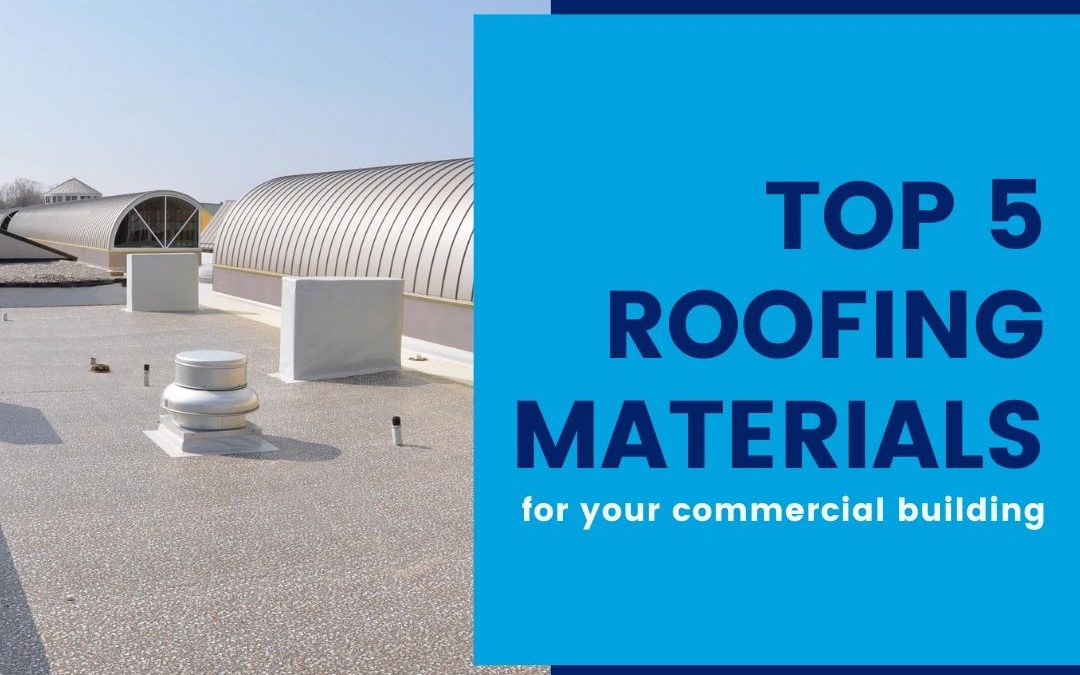As a commercial building owner, your number one goal would probably be to have a good sense of security. One way to achieve this is to ensure that the roofing systems for your commercial building are always in the best possible condition.
Besides, your roofing system’s overall condition has a lot of influence on the whole building. This is because the roof is the independent material that hinders the exposure of your expensive facility to various outside elements. Thus, the poor state of roofs could lead to significant damage to the building and your business in particular.
The use of durable, roofing materials cannot be overemphasized. But selecting the right materials for a particular commercial roofing project could be a bit dicey. Consequently, making the wrong choice of roofing materials could lead to an early compromise of the whole roofing system.
The roofing materials’ choice depends on several factors, which require the experience of a commercial roofing contractor to determine, including:
- Location of the facility
- Purpose of the facility
- Type of facility
- Weather stability
- Material’s energy efficiency
- Versatility, etc.
In this article, we will highlight the top five most viable roofing materials for your commercial building in 2020. Read on!
BUILT-UP ROOFING (BUR)
This is a commonly used commercial roofing material, also known as tear and gravel roof. It is made up of several layers of reinforcing fabric and asphalt, with the top layer housing the tar and gravel.
One of its many advantages includes creating a continuous sealed surface that improves the weather-proof property of the roofing system. BUR is majorly used for commercial buildings with low slope roof designs.
Are you getting overwhelmed with options? You may want to get in touch with your commercial roofer to offer you advice and make an informed decision.
EPDM ROOFING MEMBRANE
Wondering what EPDM stands for? It means Ethylene Propylene Diene Monomer, which is the most common thermoset roof membrane. It has been in use for commercial roofing purposes since the 1960s. Although it only became widely used in the 1980s.
These roofing materials are majorly made from ethylene, and propylene with the only small addition of diene monomer (pardon the technical details).
EPDM is a very durable rubber roofing membrane, and it is effortless to install. Roofing systems that involve the use of the EPDM membrane provide substantial sunlight resistance. But the ability to perforate easily is a primary concern here.
MODIFIED BITUMEN ROOFING
This roofing material is quite different from the tar-and-gravel roofs but shares some similarities with the EPDM membrane. Significantly, it is not to be confused for EPDM at all, because the modified bitumen is made from asphalt, while EPDM is made from recycled rubber.
Adopting the use of modified bitumen is an ideal choice when it comes to the roofing of low-slope commercial buildings. Its extreme tear resistance makes it more suitable for use than many other roofing materials on the commercial market.
PVC ROOFING
PVC roofing, or polyvinyl chloride, is a single-ply roofing solution used on commercial or industrial roofs that are flat or low sloped. PVC is the third-most widely produced synthetic plastic polymer. Benefits of a PVC roofing material include its recyclability, reflectivity, and high flame resistance.
PVC roofs can adapt to different weather conditions or extreme temperatures, making them an energy-efficient material.
PVC membranes are produced in numerous colors, though gray and white are the most common.
METAL ROOFING
Most certainly, the list wouldn’t be complete without the inclusion of this spectacular commercial roofing material. Several metal panels are used for roofing systems for your commercial building, but structural metal panels are majorly used for commercial buildings.
The solidity of the metal roofing system has made metal a preferable choice of material for business owners. Also, not forgetting its attractive finished look, incredible fire resistance, and low permeability, to mention but a few. Amazingly, the perfect material for a rooftop PV (Photovoltaic) system is also metal!
Finally, commercial roofing contractors like DK Haney Roofing have invested time in researching the right materials for completing metal roofing projects.
CONCLUSION
In general, when researching roofing systems for your commercial building, it is advisable to bear in mind the building’s overall health. Regardless of your final choice, don’t compromise on qualities like safety, durability, energy efficiency, versatility, and comfort for a lower cost. This will eventually save you extra money, as well as unwarranted troubles in the long run.
Whether you need a sturdy and superior quality roof for your new commercial building; or are looking to replace your commercial roof with a long-lasting, thermally efficient, and beautifully-engineered material, you won’t be disappointed.
DK Haney Roofing is the leader in commercial roofing contractors for the installation of premium commercial roofing materials across the US.
As trusted roofing contractors, business owners rate us highly for our superior service, quality delivery, and unparalleled customer experience. Partner with us on your next project, and let’s protect your assets expertly. Contact us today!

